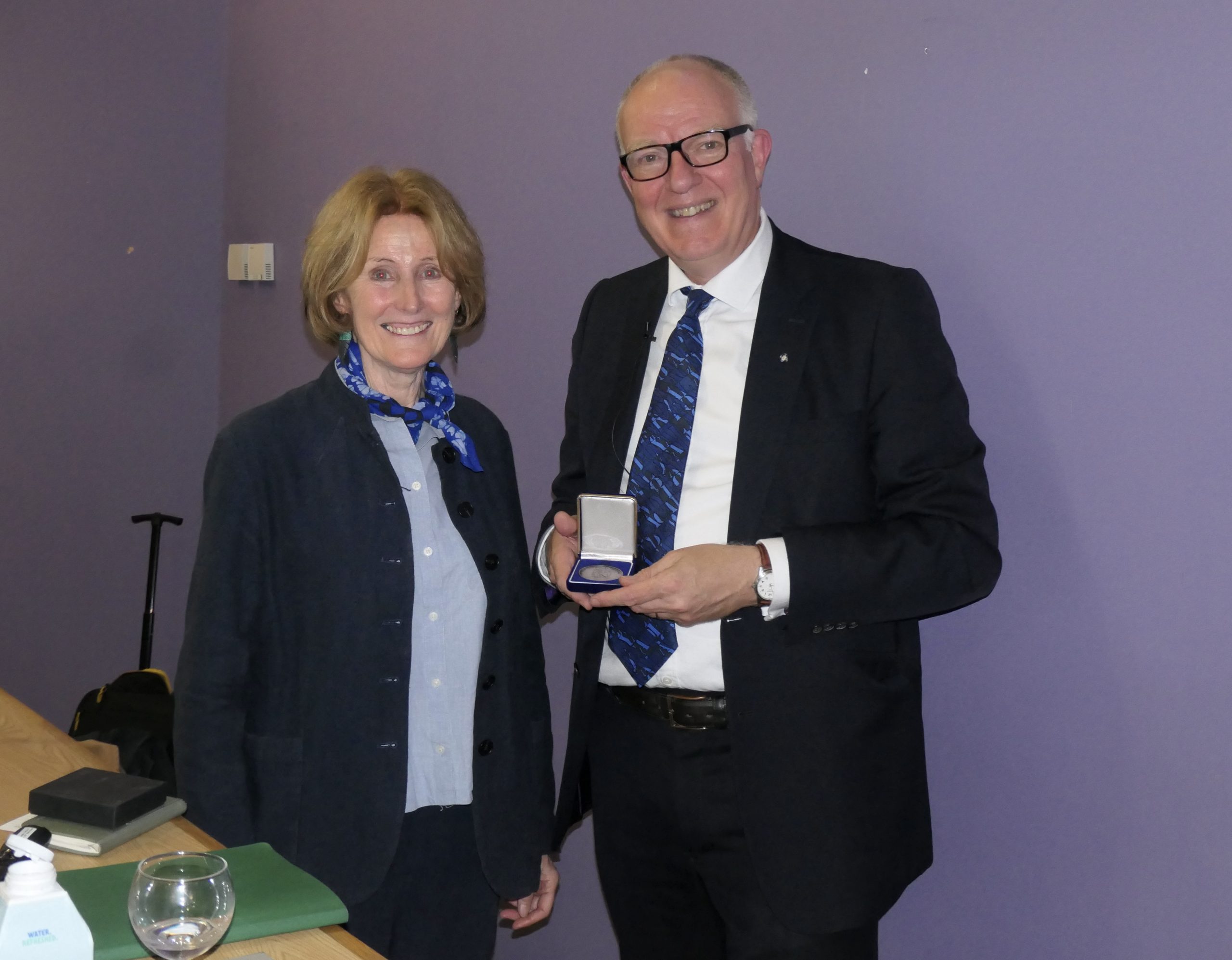
A review by member Croy Thomson of the talk
“Do you see why books are hated and feared?” asks a character in the classic book-burner novel Fahrenheit 451. It’s a good question.
In a swift and compelling hour, Richard Ovenden, Bodley’s Librarian, explained not only why books are feared, loathed, destroyed and lost, but also why every book should be cherished and protected. Books, he believes, are fundamental to democracy, to the rule of law and to the rights of you and me. Librarians are guardians of truth, and bookshelves barricades against barbarism.
We encountered real-life heroes and villains such as Donald Trump, Henry VIII, John Rockefeller, Vladimir Putin, the Stasi, Chairman Mao, The State of Utah, the Royal Navy, Sylvia Pankhurst, the Frankfurt Paper Brigade (definitely heroes) and Tunnock’s Caramel Wafers (Mr O is fond of Glasgow, its pubs and its renowned biscuity delicacy).
There were several catalysts for Richard Ovenden’s passion for books and libraries. He touched on ancient Assyria’s library of clay tablets, millennia old; Nazi Berlin’s pyres of books deemed ‘unGerman’; the Great Library of Alexandria’s extinction through neglect (as dangerous a foe as fire). He was hooked by Orwell’s 1984: “There was truth and untruth and if you clung to the truth … you were not mad.”
We Brits are not unguilty. In 1550 the University Library of Oxford allowed its books to be torn up and used as linings for pie trays (“Oi! There’s a spine in my pie!”). In 1814 Admiral Cockburn of His Majesty’s Royal Navy torched the Library of Congress in Washington DC. Very recently our government destroyed immigration documents relevant to the Windrush Scandal.
‘The past was erased, the erasure was forgotten, the lie became truth’
George Orwell, Nineteen eighty-four (1949)quote
To destroy books, libraries and museums is to undermine a nation’s ability to function. Without the ‘boring’ minutiae lodged in, say, land registers, judicial archives, censuses and even local newspaper files, it’s difficult to establish facts and to run a court, a council, a country. That’s why in 1992 Bosnian Serb militia shelled only one building in Sarajevo: the central library. Today in Ukraine libraries are targets for Russian missiles – “Putin is waging war on Ukrainian memories”. The steady cutting of budgets for libraries is an existential threat here and now in the UK.
Amidst heat, hope. Let us remember the librarians of Warsaw and Vilnius, who, under Nazi or Soviet guns, smuggled banned books to sanctuary. Trust in the Library of Banned Books in Paris. Admire the magnificent library in Louvain, Belgium, twice destroyed in world wars and twice resurrected. Know that Artificial Intelligence has hit the ‘Data Frontier’ and is incapable of capturing all that humans have recorded, be it true or fake (we should keep the fake stuff too, to give the truth context).
Here’s the Ovenden list of the key functions of libraries:
- Education – libraries are encyclopaedias for everyone.
- Investigation – information of all kinds can be essential in verifying facts.
- Diversity – support different languages, ideas, ways of living e.g. LGBTQ+.
- Reference – we can’t rely on privately owned sources of information such as Facebook.
- Identity – without your memories and roots, who are you?
The always entertaining audience questions included, “Are we more likely to have an Orwellian Ministry of Truth in the digital age?” Answer: that depends on remembering all the passwords.
Final quotes: “A great library has something to offend everyone.” (M J Godwin). “Where they burn books, in the end they will burn people.” (Heinrich Heine in 1821).
Biography

Richard Ovenden is Head of Gardens, Libraries, & Museums (GLAM), a post he holds together with being Bodley’s Librarian (the senior executive officer of the Bodleian Libraries), and is responsible for their strategic oversight.
